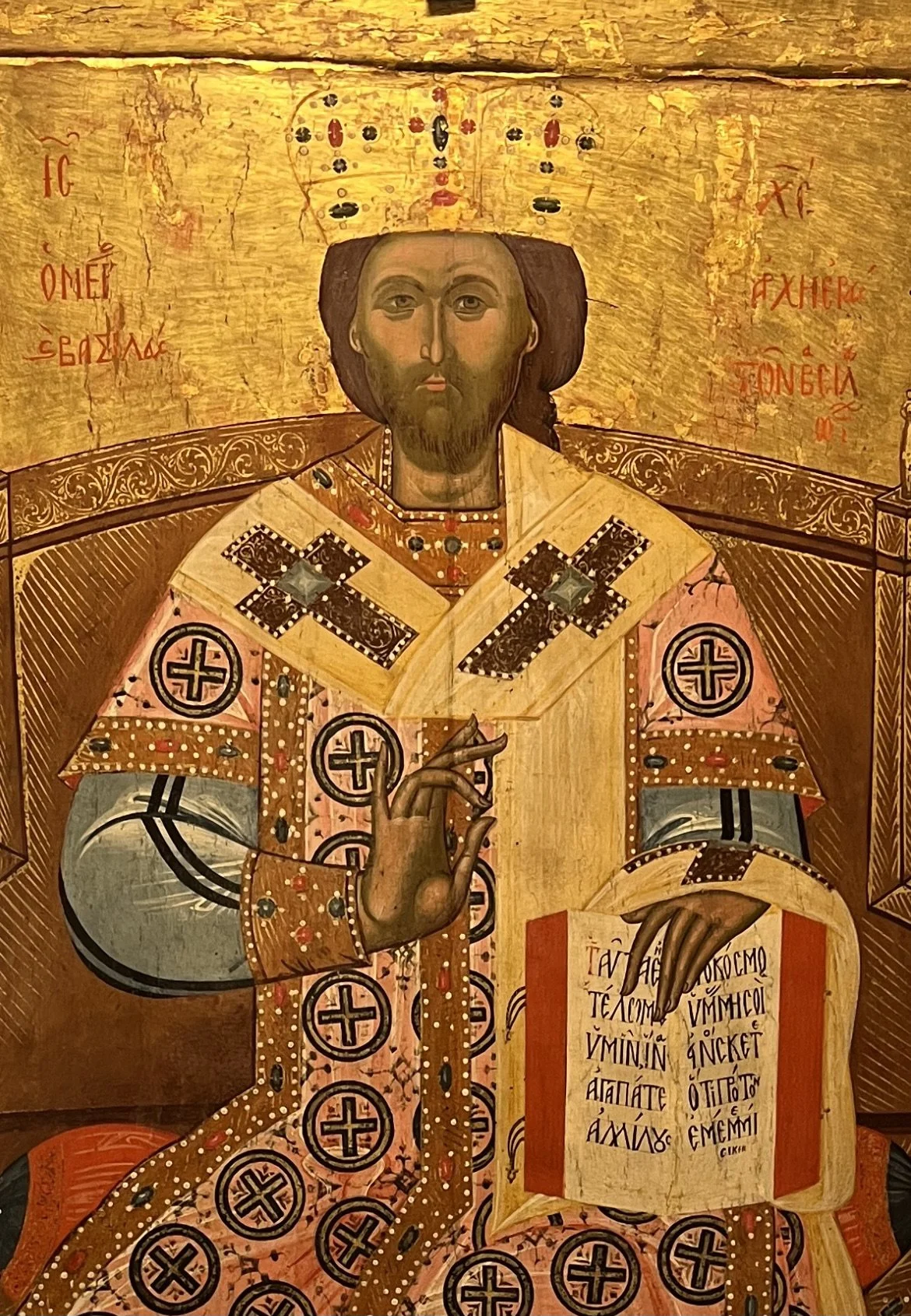The Icon Painter
He was like a character from a book, the short, sturdy man with the crooked jaw. He donned a full head of white hair and a matching beard, slightly unkept. Even though his leathery face inferred he’d been around for decades, the truth of his age was obscured somewhere behind his unusually high energy. His eyes glittered and danced the bachata, then they swayed into a waltz, twinkling along into something like a swing dance. There was a playful freedom about his movements, giving the impression that in his core, he remained a young boy. Naturally, I decided he was the Peter Pan of Eastern Europe, tucked away in this church, situated in one of many Bulgarian mountain towns.
The walls of the church towered in their white splendor, expelling the cool February air from outside. The floor was polished and smooth, covered with a thin layer of dust. It seemed to think its main function was to reflect the sun that poured in through the windows, peeking out from under the high ceilings. It was the perfect surface for slipping about, mimicking the movements of an ice skater, as the old man had seemingly discovered. He kept sliding his heels and toes together, dancing out of rhythm to the orthodox choir chanting on the radio. He would get a running start and then slide a meter or two, pointing out traces of his genius in the paintings that graced the canvas-like walls. The Bulgarian martyrs in traditional dress, the gold paint that glowed behind the saints, Kiril and Methodius, the founders of the Cyrillic alphabet— they all bore the man’s talent. He was an icon painter and with glowing pride, explained the development of his personal style that, with elegant strokes, coalesced into his paintings. It was unique to see a church under the process of being iconified. Random heads floated in white spaces, adjacent to full murals that had already been completed. He was indeed very talented, and many of his impressions of the biblical scenes and characters were unlike others. Still I wondered, with what else he put his time towards when not painting holy art. He was the kind of man who seemed unable to sit still, like the idea of retirement was, to him, the most foreign concept of Western culture. For a man at his unknown age, with a lively vigor, it made the patience required to sit and paint for hours, that much more impressive.
As we gazed with heads tilted up towards the detail and intricacy of the decorated walls, the chill air began to settle in our bones. One can only talk paint for so long and I was grateful when someone suggested coffee. I turned around to see who deserved my gratitude and saw the priest standing in the doorway. He was significantly younger than most I had met and his face appeared to be fixed in a permanent, yet authentic kind of smile. We walked outside, into the brisk mountain air, up the hill and around the corner. The church was located near the center of the town, so the cobbled streets and uneven sidewalks hummed and thumped with people going about their day. Some of them greeted the priest with smiles, calling him angel.
As we sat in the café with cups of herbal tea and espresso, the painter tapped his sugar packet in rhythm to “Super Freaky Girl” playing over the speakers. The priest sat adjacent to him. He wore his black dress that went down to his ankles and a grey fleece. Sitting casually, he rested his right foot upon the chair beside him and nestled his elbow in between his ribs, shrinking his stature so he resembled a little boy demanding orange juice with no pulp. Though priest was considerably younger than the painter, the pair seemed like good friends, poking each other, laying a hand on the others elbow and joking like school boys. They spoke in Bulgarian, so with some difficulty I worked to pick up bits of conversation. Communism always seemed a popular topic and frequently came up as a reason for the present state of things. With ease they transitioned into discussion of tea flavors and honey, the car accident that had occurred in the next town over, the winter and the schools. They laughed plenty, but I always missed the jokes. The priest, eternally grinning, would nod to me as if I understood everything. When we got up to pay, the old man with the playful eyes had already done so. He was pleased no one had noticed.

